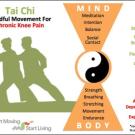Enhancing Patients’ Treatment Adherence
The single most important aspect of getting patients to use their medication is patients’ trust in their doctors. And the single most important aspect that affects patients’ impression of their doctors is whether the patient feels the doctor cares about them. So making sure patients realize we care about them should be a priority. Sometimes, doctors fail spectacularly in this regard.
In January 2014, author, economist and entertainer Ben Stein described in The American Spectator his terrible experience at an outpatient dermatology clinic (The American Spectator, http://spectator.org/articles/57359/beverly-hills-dermatologist, January 7, 2014). Even before he saw the doctor, his experience of the waiting room and his interactions with the office staff left him feeling that he was held in “sickening contempt.” And things went downhill from there. The doctor left him with the impression that the doctor cared more about money than with his health. That’s the kiss of death with regard to patient satisfaction.
My father related to me his experience when he needed to find a new internist. He called several practices. If the practice first asked him what kind of insurance he had, he knew that wasn’t a practice he wanted to go to. He expected that the first question should be about whether he had a medical problem that they could help with. He wanted to know they cared about him, not his wallet.
Some people hold that we physicians should not be accountable for our patients’ health outcomes, as we hold little control over the patient behaviors that affect those outcomes. I’m not so sure. If patients know we care about them, they will be much more likely to trust us and to follow our medical advice. We should hold ourselves responsible for making sure our patients realize we care about them (and if we truly don’t care about them, it may be time for a career change). As we can see from Stein’s experience, how patients will perceive us is set in large part before they lay eyes on us. We should work to assure that the context we set—the scheduling call, the parking lot, the waiting room and the office staff—leaves patients with the perception that our medical practices cares about them. Our own behaviors should reinforce that perception. If we leave patients feeling cared for, we will avoid the spectacular failures in patient satisfaction that Stein so meticulously described.
Dr. Steven Feldman is a professor of dermatology and public health sciences at Wake Forest Baptist Medical Center in Winston-Salem, NC, where he studies patients’ adherence to treatment. He is also Chief Science Officer of Causa Reseach, an adherence solutions company (www.causaresearch.com), founder of www.DrScore.com and author of “Compartments” (www.compartmentsbook.com).




